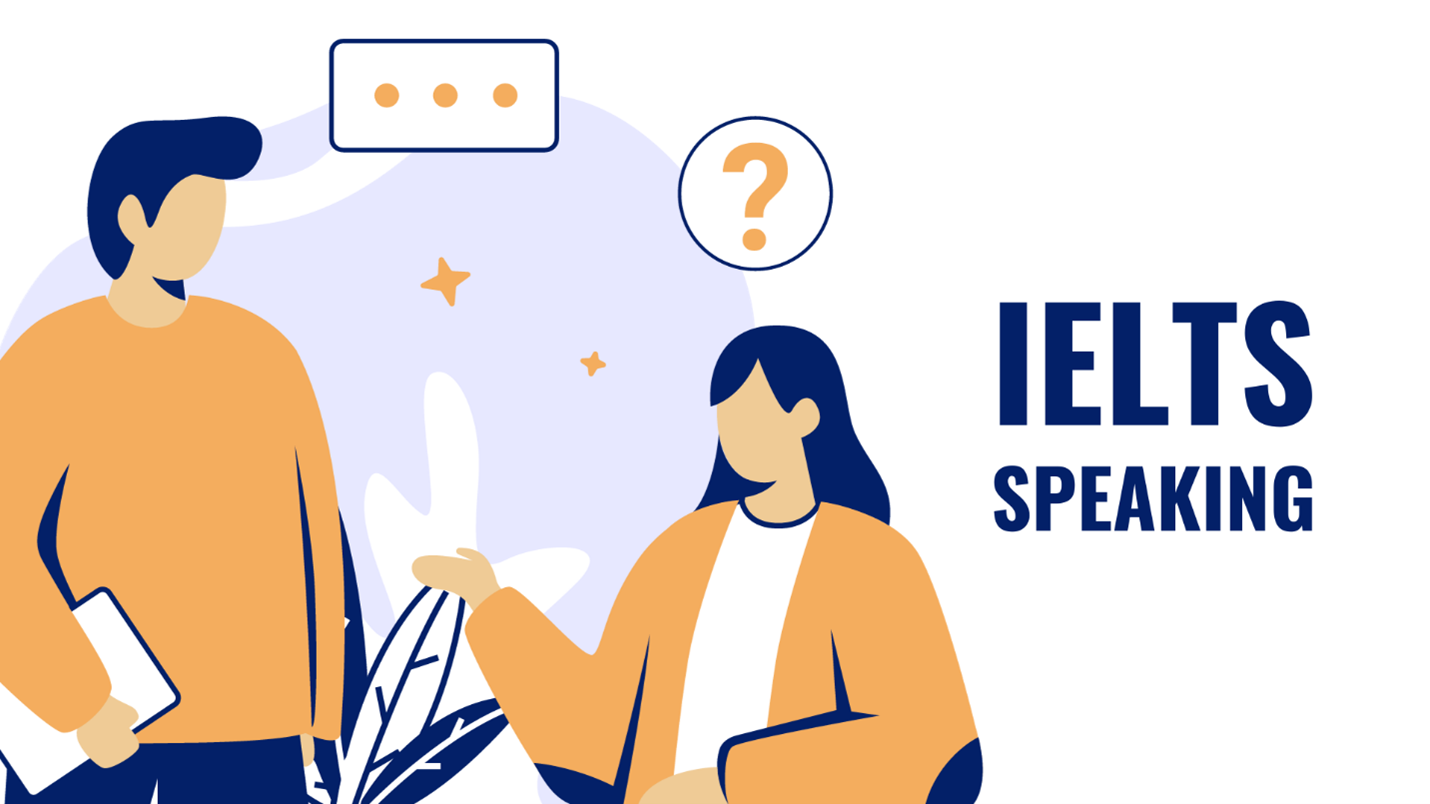Physical Address
304 North Cardinal St.
Dorchester Center, MA 02124

Are you wondering how to pass IELTS Speaking test with ease? If you’re preparing for the test, chances are you’re feeling a bit anxious about speaking in front of an examiner. But guess what? You don’t have to feel overwhelmed!
The key to passing the IELTS Speaking test is simple: be yourself, stay calm, and practice the right way. Sign up for the ExcelMind app today, where we’ll guide you every step of the way to success—and help you pass with ease.

Plus, don’t miss our ongoing Sunday Grand Drop Giveaway, where you can win amazing prizes like laptops, smartphones, and even 100k cash! Keep reading to find out how you can get in on the action.
The IELTS Speaking test feels difficult because it’s live, and it’s designed to check more than just how well you know English. It’s about how well you can communicate your thoughts. During the 15-minute test, you’ll talk to a trained examiner who will assess how fluent and coherent you are, how rich your vocabulary is, how accurate your grammar is, and of course, your pronunciation.
But here’s where most students go wrong: they focus so much on memorizing perfect answers that they forget the real goal is to have a natural conversation. And guess what? Natural is what you need to aim for.
Read Also: When is the Next IELTS Exam in Nigeria? And Unlock Success
The IELTS Speaking test is made up of three parts that assess your speaking ability. It’s important to understand what to expect in each part so that you can be fully prepared.

By understanding these formats, you can approach each part of the test with confidence, knowing exactly what to expect. The ExcelMind app provides practice exercises for each part of the test, so you can be well-prepared for all the challenges you may face.
Let us show you how to pass the IELTS Speaking test by being yourself and speaking with confidence.
“I’ve never done this, but let me tell you about when I…” Sounds like a good idea, right? But it’s not. Many students make the mistake of fabricating stories to sound more interesting or impressive. But guess what? The examiner knows.
Instead, speak about your real life and personal experiences. That’s what the examiner is looking for! They want to hear how you talk about things that matter to you, not how well you can make up a story. Stick to your real thoughts and experiences because honesty shows your ability to communicate effectively in English.
The ExcelMind app helps you with this by guiding you to practice speaking about real-world topics. The app has a wide range of speaking exercises based on actual IELTS topics, so you’ll never run out of things to talk about, and you’ll learn how to express your thoughts confidently.
The IELTS Speaking test isn’t about impressing the examiner—it’s about showing that you can communicate in English. So, don’t get caught up thinking about whether the examiner likes you or not.
Here’s a common mistake: many students worry about how the examiner is reacting. Are they smiling? Are they nodding? Does that mean I’m doing well? These thoughts only distract you from the real task at hand. Don’t overanalyze the examiner’s body language. Focus on your words, your ideas, and your confidence.
ExcelMind’s interactive practice features help you prepare for real-world conversations where you won’t be distracted by body language. You’ll get to speak freely, focusing on your own answers without worrying about someone’s reaction.
Many students think they need to memorize answers for the IELTS Speaking test, but this is a huge mistake. When you memorize answers, you sound like a robot, and the examiner can tell. You’ll end up sounding unnatural and may lose points.
Instead, use your own words. If you don’t know a specific word, don’t panic! Try to explain the idea using different words. This shows the examiner you can express yourself, even if you don’t know a specific word. The IELTS is about communication, not about sounding perfect.
To help with this, ExcelMind helps you practice speaking spontaneously. The app’s built-in exercises and quizzes challenge you to think on your feet and speak freely. You’ll learn to answer questions in a natural, conversational way.
Feeling nervous? Good! Believe it or not, nerves can actually help you perform better on the IELTS Speaking test. That’s because nervousness is just energy waiting to be used. Rather than letting anxiety stop you, use it to help you speak with more energy and enthusiasm.
When your mind goes blank, don’t just sit there in silence. Use phrases like “My mind just went blank” or “I’m not sure, but if I had to guess…” This shows the examiner you can handle moments of uncertainty and stay calm.
The ExcelMind app helps you build confidence and practice handling nerves. The more you speak, the more you’ll get used to feeling relaxed and confident during the test. It’s about preparing with real-life, practical exercises that help you manage stress while speaking.
Many students believe that agreeing with everything the examiner says will earn them points. Wrong! Your score depends on how well you express your ideas, even if you disagree with the examiner.
When you disagree, make sure to do it respectfully. Try saying, “I understand your point, but I think…” or “That’s an interesting idea, but I believe…” This helps you stay in control of the conversation and demonstrates that you can discuss opposing ideas fluently.
ExcelMind helps you practice critical thinking skills by giving you topics where you have to take a stance and support your views. The app helps you build responses, even to controversial or unexpected topics.
A lot of students are nervous about their accent. Here’s the thing: your accent won’t hurt your IELTS Speaking score. What matters is that you pronounce words clearly and stress the right syllables.
Don’t try to fake a native accent; just focus on speaking clearly and at a comfortable pace. Use stress and intonation to show the examiner that you know how to stress important words and use natural rhythm in your speech.
ExcelMind’s pronunciation tools help you improve your accent without trying to change it. The app offers real-time pronunciation feedback that will help you work on your stress, intonation, and overall clarity. It’s like having a tutor with you all the time.
SEE: Is IELTS Compulsory for Canada Student Visa? Things to Note
Let’s face it: preparing for the IELTS Speaking test can be nerve racking. But with the right tools, it doesn’t have to be. The ExcelMind app is your go-to solution for passing the IELTS Speaking test with ease.

Here’s why ExcelMind is the best tool for you:
See Also: How the IELTS Exam is Conducted: Your Road to Success in One Sitting
So, what’s the secret to passing the IELTS Speaking test? Be yourself. Speak naturally. Practice consistently. And use the ExcelMind app to guide you along the way. This app is not just another study tool—it’s your personal speaking coach, helping you prepare confidently and efficiently for the test.
Ready to take the next step? Visit ExcelMind now and start preparing for the IELTS Speaking test. With just a few minutes of practice each day, you’ll be well on your way to achieving your desired score.
Remember: The IELTS Speaking test isn’t a test of how perfectly you speak English; it’s a test of how well you communicate. So focus on your real experiences, stay confident, and trust the process. With ExcelMind, you’ll pass the IELTS Speaking test with ease.
To succeed in the IELTS Speaking test, focus on the following key strategies:
Be Natural: Speak from personal experience rather than memorising answers. The examiner wants to hear your natural speaking abilities.
Practice Regularly: Consistent practice helps improve fluency. Engage in daily conversations in English, record yourself, or practice with friends.
Stay Calm: Nerves are normal. Use deep breathing techniques to stay relaxed and focused during the test.
Expand Your Answers: Don’t give one-word answers. When asked a question, provide a detailed response with examples or explanations.
Use Correct Grammar and Vocabulary: Avoid complex, unfamiliar words that you might misuse. Use a range of vocabulary you’re comfortable with.
The IELTS Speaking test can feel challenging, but it is not designed to be impossible. It’s a natural conversation that evaluates how well you can communicate in English, so the difficulty mainly comes from nerves and the pressure of performing well in a timed environment.
Here are a few reasons why students find it challenging:
Speaking in front of an examiner can be nerve-wracking, especially if you’re not used to conversing in English under pressure.
Time limits may make it difficult for some to think quickly and organise their thoughts.
The variety of topics in Part 2 and Part 3 of the test may seem overwhelming if you’re not prepared for spontaneous conversation.
Correcting yourself during the IELTS Speaking test is completely acceptable and can even demonstrate that you’re aware of your mistakes and know how to fix them. Here’s how you can handle self-correction effectively:
Acknowledge the Mistake Briefly: If you realise you’ve made a mistake, you can quickly acknowledge it without over-apologizing. A simple phrase like “Oh, I meant to say…” or “Sorry, let me rephrase that…” is enough to let the examiner know that you’re correcting yourself.
Rephrase or Restate Your Answer: After identifying the error, restate or rephrase your answer clearly and accurately. For example, if you mistakenly say, “I am go to the store,” you can correct it by saying, “Sorry, I mean I go to the store every weekend.” This shows that you can recognise and correct grammatical errors.
Don’t Overthink or Dwell on Mistakes: Don’t get too caught up in the mistake. If you pause too long, it can affect your fluency. Quickly correct the error and continue with your answer. IELTS examiners are more focused on your overall ability to communicate than on minor slip-ups.
Practice Self-Correction: During practice sessions, deliberately make mistakes and practice correcting them. This will help you feel more confident and calm during the actual test.
In the IELTS Speaking test, Part 1 is where you’ll introduce yourself to the examiner. This part is designed to make you feel comfortable and get you talking in English right away. Here’s how to introduce yourself effectively:
Start with a Simple Greeting: Begin by saying, “Hello” or “Good morning/afternoon” to the examiner, followed by your name. For example:
“Hello, my name is [Your Name]. It’s nice to meet you.”
State Where You’re From: You’ll often be asked where you’re from, so be ready to mention your hometown or city.
“I’m from [City/Town], which is located in [Region/Country].”
Mention Your Job or Studies: You might be asked what you do for a living or what you study. Provide a simple answer.
“I’m currently a student at [University] studying [Your Major],” or
“I work as a [Job Title] at [Company].”
Add a Personal Touch (Optional): The examiner might ask you a few more questions about yourself, so you can briefly mention your hobbies or interests.
“In my free time, I enjoy [hobby or activity], like playing sports or reading books.”
Stay Calm and Natural: Remember, the goal is to sound natural and relaxed. You don’t need to memorise a script, just talk about yourself as you would in any casual conversation.
In the IELTS Speaking test, particularly Part 2, you are required to speak for 1-2 minutes on a given topic without interruption. If you don’t speak for the full 2 minutes, it could negatively impact your score, as the examiners are assessing your ability to speak at length and organise your thoughts.